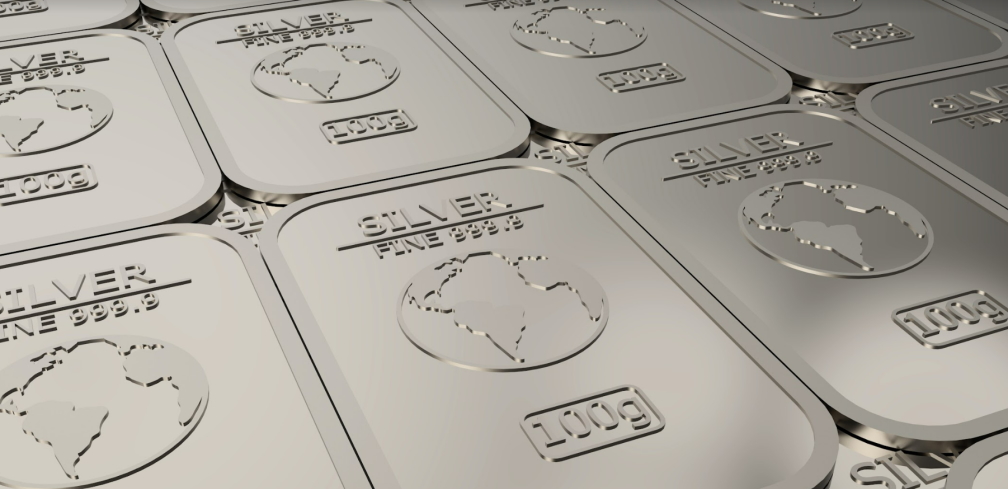4 Ways To Invest In Silver
- Written by NewsServices.com

In terms of alternative investments, silver has always been a popular choice for investors, much like gold.
It’s said that silver and other precious metals are in high demand primarily because they retain their value over time. That’s why investors use them to diversify their portfolios and hedge against inflation. Silver is also less expensive and substantially more abundant than gold.
Silver is, nevertheless, susceptible to the forces of supply and demand, just like other precious metals. Therefore, the value of silver is relatively volatile. But these price changes allow investors to benefit when they sell their holdings. They buy low and sell high.
So, if you're willing to hold onto silver for a while, it may be a profitable investment. That said, here are the ways you can invest in silver. Keep on reading to learn more.
- 1. Physical Silver
For many years, buying silver in its physical form was the primary investment method. That may be in the form of bullion, coins, or jewelry. It's crucial to remember that you should only work with reliable dealers when purchasing physical silver.
If you’re a novice silver investor, you may end up paying too much for the silver if you buy from unregistered dealers. Therefore, working with credible dealers ensures that you receive fair prices and protects you from exploitation.
Solid silver bars are stamped blocks of silver that have been poured or pressed into troy-ounce weight measurements. Reputable metals dealers sell silver bullion, so anyone can buy it from them. If you're a novice investor, go for lower ounce counts because they'll be easier to sell.
Plus, silver coins are an excellent alternative because you can trade for them easily on the open market. But you could opt for silver dimes like the mercury or Roosevelt dimes which are much more compact and could be a fantastic investment for coin collectors too. To know what are silver dimes worth, you can conduct some research to understand their history and how you could buy them.
Nonetheless, even though silver is an excellent investment, you’ll likely only be able to profit from it if the market price rises or falls. And you’ll have to invest in proper storage to ensure no one steals your silver. Lastly, buying silver in its physical form does come with risks that you should be prepared to deal with before buying it.
- 2. Futures
Out of all the ways in which you could invest in silver, futures are the riskiest. The futures market is essentially speculative. So, futures investors make profits by betting on whether the prices of silver will rise or fall. Without the inconveniences of owning physical silver, silver futures offer an alternative to speculate on the silver’s price volatility.
Also, because futures contracts provide such high levels of leverage, futures are a tempting tool to participate in the silver market. But the leverage goes both ways. You can gain a lot of money very quickly if silver futures move in the right way, but you can lose it just as rapidly if you're wrong. Therefore, futures are extremely risky and should ideally be left to experienced traders.
- 3. Exchange Traded Funds (ETFs)
Silver ETFs are a good option for those who wish to invest in silver but may not have a substantial budget.
A silver ETF mainly invests in physical silver assets held in trust by the fund management or custodian. Investing in silver ETFs is much safer than physical silver, so you won’t have to worry about storage or theft.
Additionally, since ETFs follow the market prices of silver very closely, if the value of silver increases while holding onto an ETF, you’ll get the same return as you would on the market minus the ETFs expense ratio.
Moreover, since ETFs are very liquid, you can quickly sell them on the market. Yet silver is susceptible to volatility, much like gold and other precious metals, especially over brief intervals. The possibility of theft and illiquidity when it comes to trading are some of the main concerns of owning physical silver. But with an ETF, you can avoid them.
- 4. Stocks
Another choice is to invest in the stock of businesses that mine, process, and trade silver, as the share values of these businesses are very closely tied to the price of silver. Nonetheless, other variables, including the company's overall performance and the broader geopolitical and environmental context, can impact its stock values. Thus, you must choose the right company when wanting to invest in silver stocks.
Owning stock in such a good company means that you’ll be entitled to receive dividends. If the company performs well, you’ll likely get a good share of the profits. And if the share prices increase, you could profit from selling them at that higher price.
Conclusion
Silver is an excellent investment since it serves as an inflation hedge and may be valuable to any investor's portfolio. In addition, compared to other precious metals like gold, silver is considerably more abundant and less expensive. Therefore, silver may be a good pick for any investor.
Yet if you want to make money through silver, it would be best to conduct thorough research to understand how silver works. Alternatively, you could consult your financial advisor to help you know more about silver.








